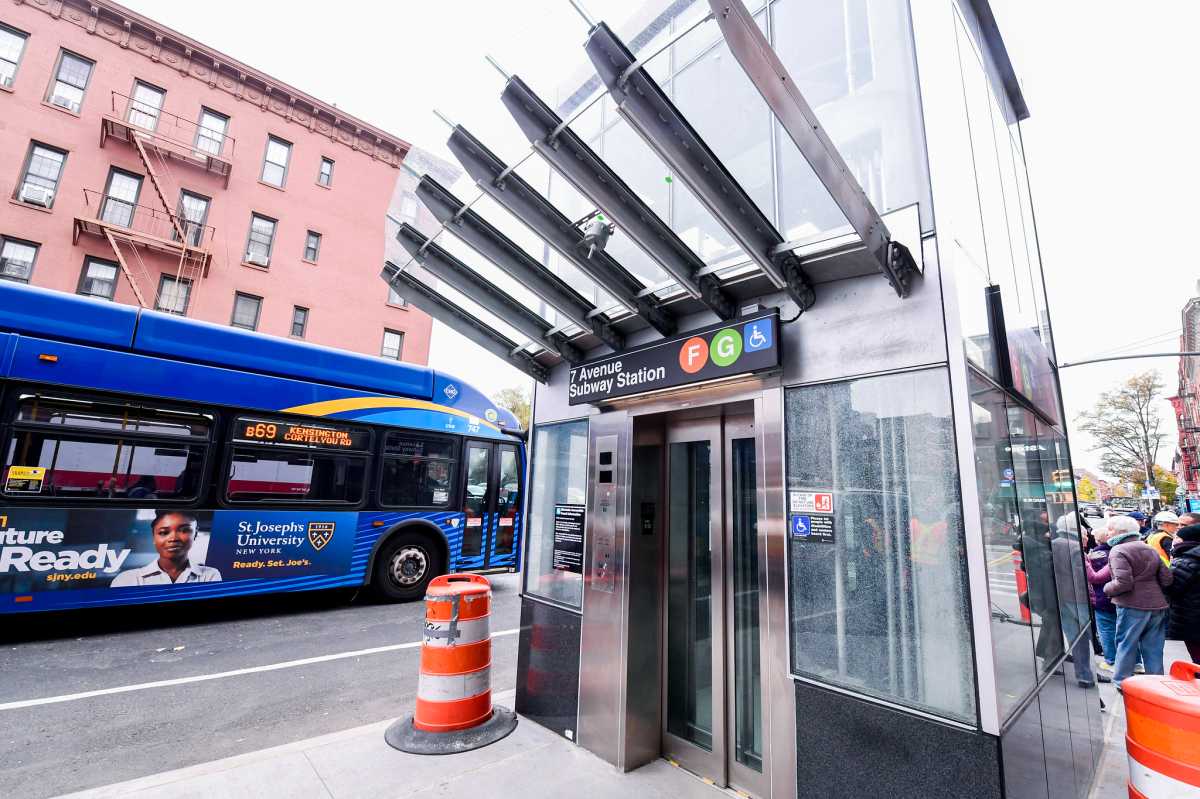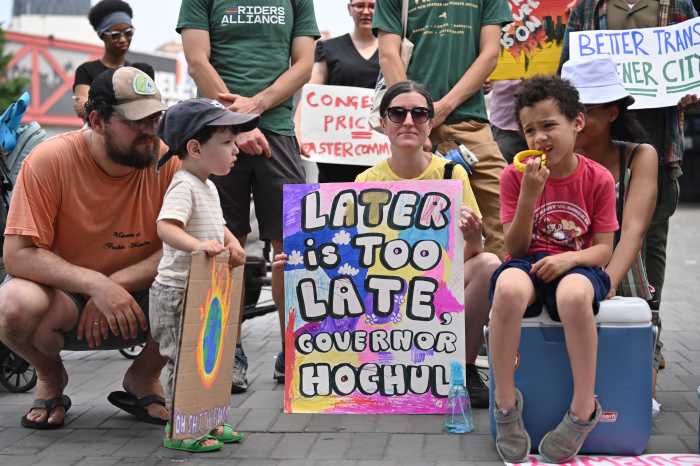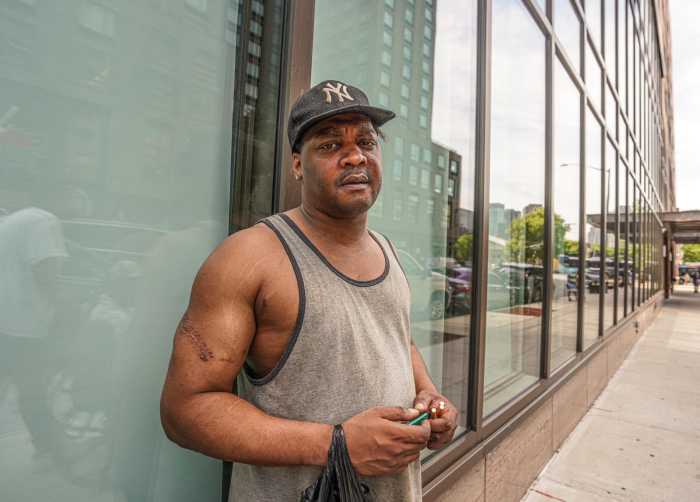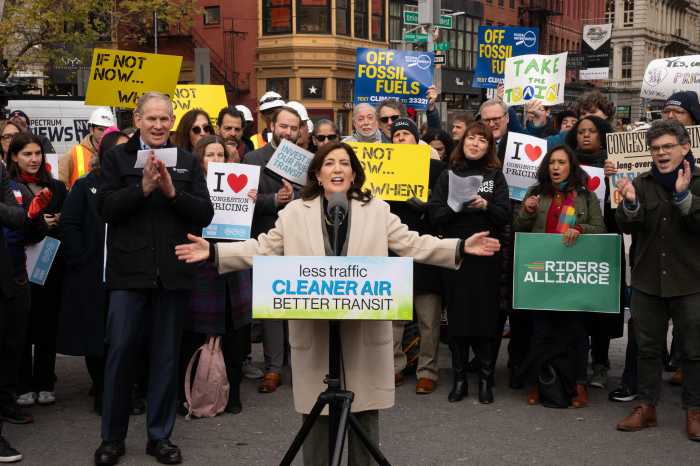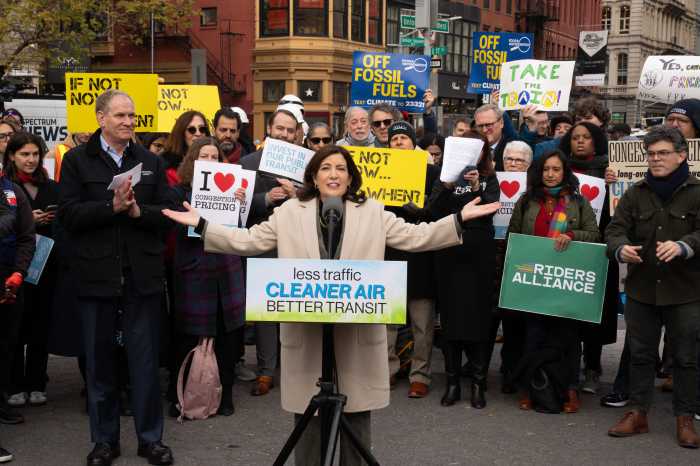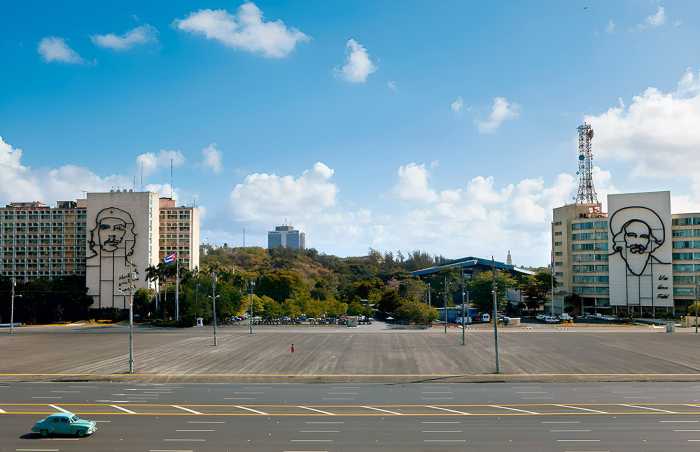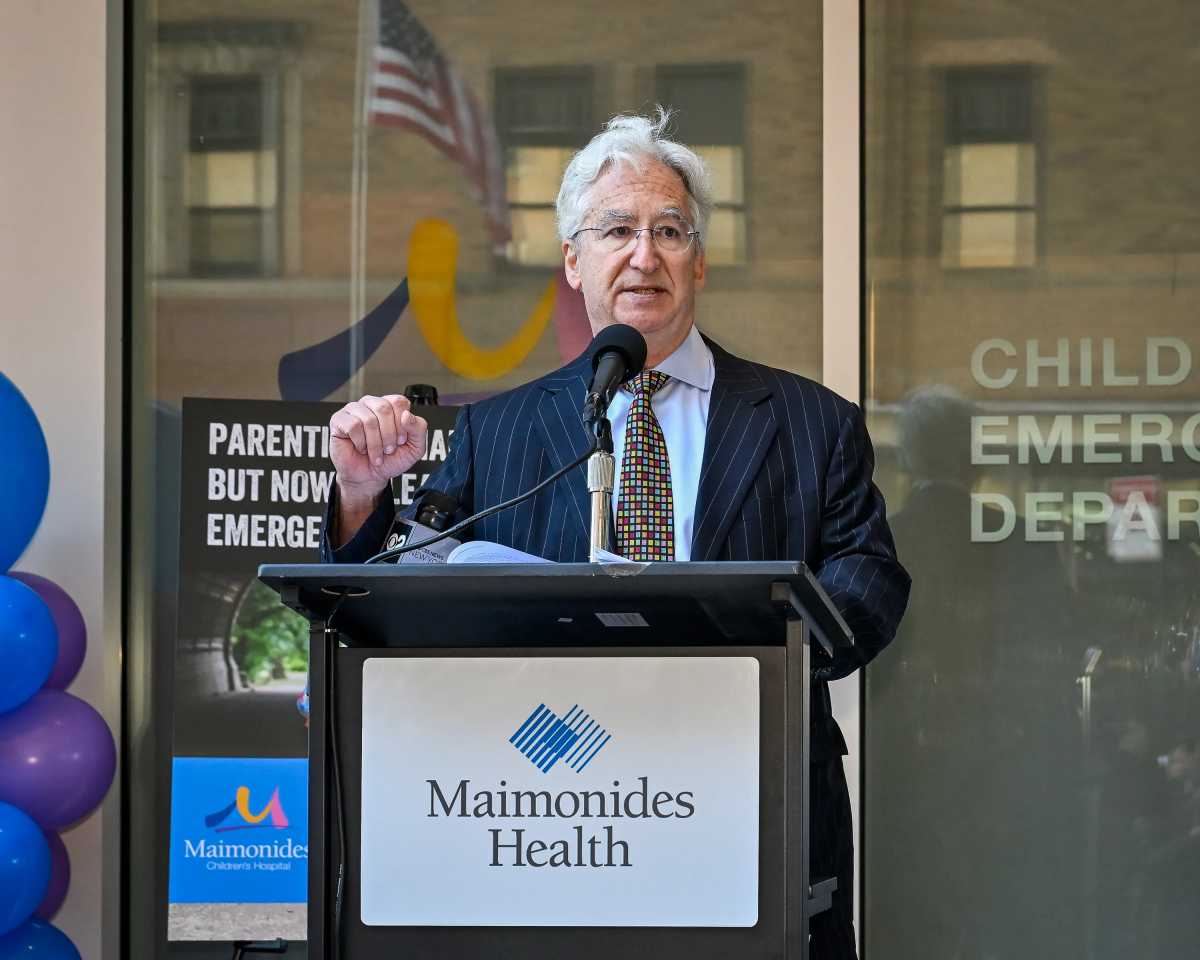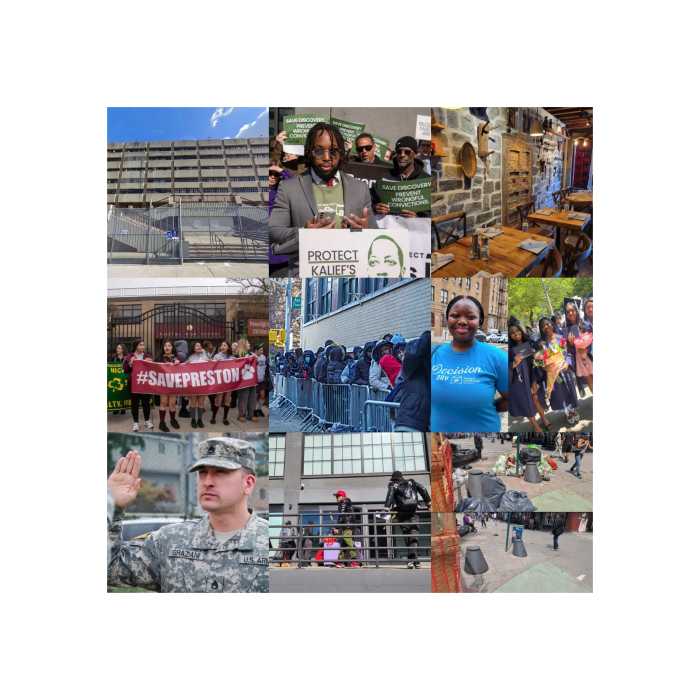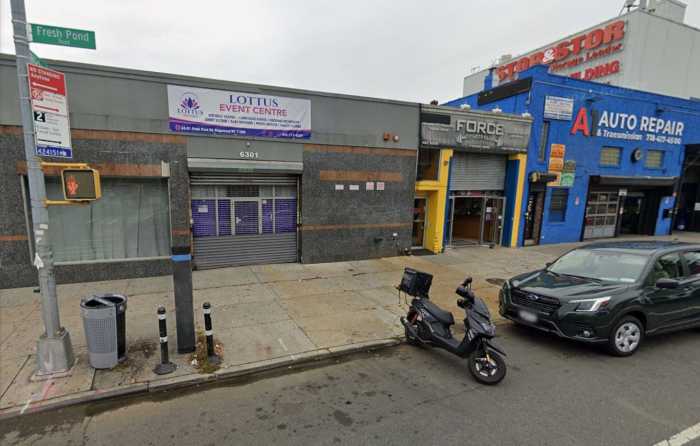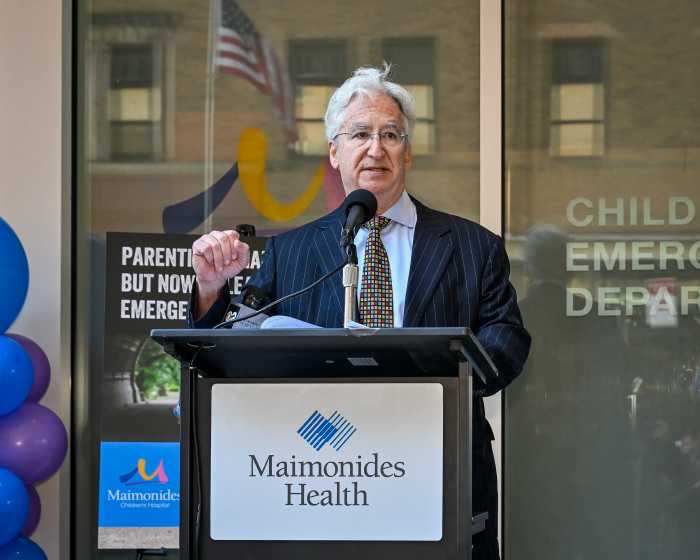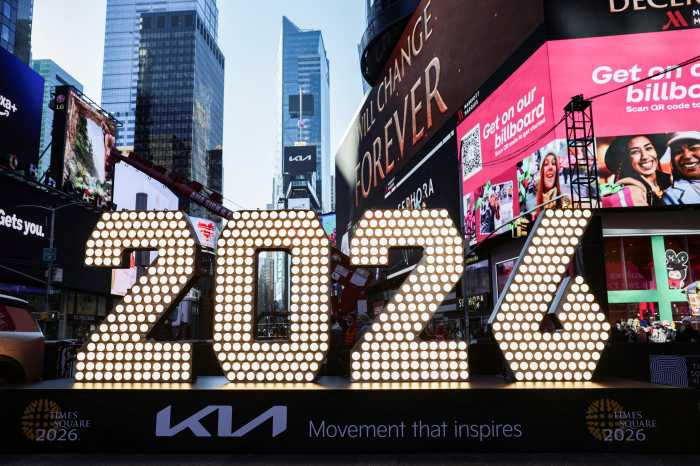Numerous New Yorkers appeared at the MTA Board’s committee meetings on Monday to decry the loss of revenue from congestion pricing — with many highlighting specifically the disability access projects the money would have funded.
Gov. Kathy Hochul’s decision earlier this month to indefinitely pause congestion pricing, which was set to start June 30, leaves a gaping $15 billion hole in the MTA’s capital budget, preventing a slew of transit improvement projects from moving forward.
One of the most important aspects of those plans was making subway stations accessible for people with disabilities. Just 30% of New York’s 472 subway stops are accessible today, lagging well behind other US and global cities three decades after the Americans with Disabilities Act. The MTA is under a federal court mandate to make 95% of stations accessible by 2055, 31 years from now.
Congestion pricing money was going to make a dent in that, funding accessibility upgrades like elevators and ramps, at least in part, at 39 subway stations across the five boroughs and 9 Long Island Rail Road stations in the current 2020-24 capital plan, which now likely cannot be completed due to lack of funds.
Furthermore, congestion pricing was expected to be a stable source of revenue that the MTA could tap into for accessibility upgrades in future capital plans, which are now on ice.
“When we pause congestion pricing, it’s not just hurting one set of communities, it’s hurting all communities. Accessibility, seniors, disability, and our veterans,” said Christopher Greif, a disability advocate and member of accessibility task forces for New York City Transit and the LIRR. “I am really disappointed with our elected officials that don’t get the point.”
Disability advocates now used to a largely inaccessible system had relative hope in the current capital plan, which dedicated $5 billion to station accessibility — the largest investment in disability access in the MTA’s history.
While Gov. Hochul has said a new source of funding would be identified for accessibility and other improvements, the only ideas she has put forward were swiftly shot down by the Legislature at the close of the legislative session on June 8. Since then, she has not been able to answer how the projects will be funded.
“We need funding for accessibility regardless of what happens with congestion pricing,” said Kathleen Collins, a board member at Disabled in Action.
The MTA is currently defending a lawsuit from disability advocates charging it illegally fails to maintain elevators, and MTA Accessibility Chief Quemuel Arroyo pointedly said on Monday the agency has no intention of settling.
The possibility that the MTA won’t be able to complete its promised accessibility upgrades could potentially open the MTA up to further litigation.
“If you don’t buck the governor on Wednesday, that doesn’t let her, the legislature, the mayor, or you off the hook,” said Joe Rappaport of the Brooklyn Center for the Independence of the Disabled. “If you’re the governor, you can blame Washington, but you’ve gotta fix this. If you’re the legislature, you can blame the governor, but you’ve gotta fix this. If you’re the mayor, you can applaud the governor, but you’ve gotta fix this. And if you’re the MTA Board and leadership, you can blame forces out of your control, but you’ve gotta fix this.”
Congestion pricing money was to fund the replacement of existing elevators at 20 stations and escalators at 6 stations.
MTA Deputy Chief Development Officer Tim Mulligan is set to make a presentation to the MTA’s full Board meeting on Wednesday on the agency’s triage efforts following the collapse of its capital plan, namely what projects will need to get the axe for the time being.
Projects are already being halted: last week, contractors working on new elevators at the LIRR’s Forest Hills and Hollis stations in Queens were hit with stop-work orders, meaning construction has to halt for the time being.
Numerous commenters descended on the Board to voice their support for congestion pricing amid the Governor’s pause on the $15-per-day toll to drive into Lower Manhattan, which was intended to curb crushing gridlock and invest billions in mass transit improvements like accessibility.
Not everyone who testified directed ire at the Governor, though. State Sen. Jessica Scarcella-Spanton (D – Brooklyn/Staten Island) praised the Governor’s pause, calling congestion pricing “the wrong plan for my constituents” and theorizing it would make air quality worse in her district on the North Shore of Staten Island — while behind the wheel of her car.
Read More: https://www.amny.com/nyc-transit/



